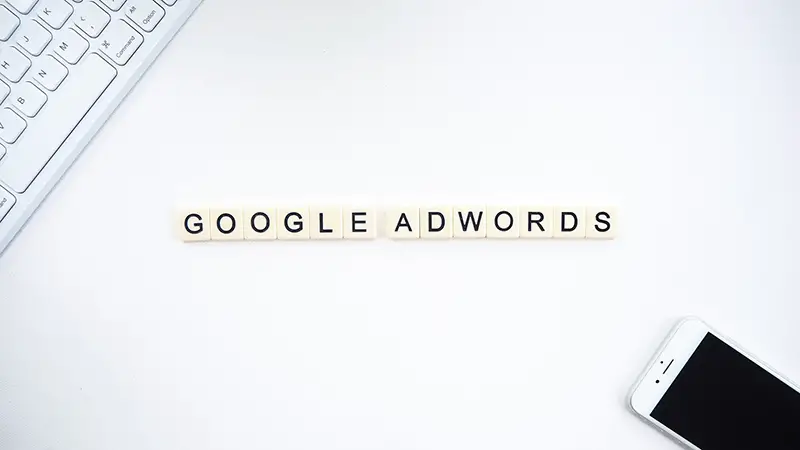Click here to get this post in PDF
Writing ad copies is one thing. Whipping up compelling Google Ads, though? That’s another story. How does one create a striking ad that leaves a mark in just a few words?
Fortunately, writing Google Ads isn’t as complicated as rocket science. However, mastering this skill is both an art and a science. On top of flexing your creative muscles, there’s the character limit to think about. Every word counts.
It’s easier said than done. Don’t worry, though; you don’t have to go into this blind. We’ll show you a few tips and tricks that’ll help you get the hang of writing Google Ads like a pro. Trust us; they work every time! We’re the best in digital marketing agency NJ and we have helped 100’s of small businesses grow. Our locally branded services is what makes us stand out, so if you need an efficient solution for your company then give our team a call!
How to Write Striking Google Ads
#1: Information Is Power
You know an ad is effective if it manages to answer searchers’ questions in just a few words. This first tip takes a few cues from the Father of Advertising himself, the late David Ogilvy, who said, “Advertising is not an art form; it’s a medium for information, a message for a single purpose: to sell. When I write an advertisement, I don’t want you to tell me that you find it ‘creative.’ I want you to find it so interesting that you buy the product.”
Information is the key to persuasion. Your ad copy should be detailed enough to pull consumers to check out and buy what you’re trying to sell.
#2: Look for an Opening
How can you ensure your ad has proper positioning? The answer is to find an opening amidst the competitiveness. There’s bound to be an advantageous spot for your product or service!
Let’s say you’re a local who is deeply involved and immersed in your community, while your competitors aren’t. You can use that to your advantage by localizing your ads and using language and context that locals will relate to.
That opening is a leg up from your competition, and you should use that to win the battle of perceptions. If your community is looking for a nearby product or a service, that’s your cue to enter!
#3: Let Customers Know What’s in It for Them
According to Claude Hopkins, customers are naturally selfish. They won’t be convinced to buy what you’re going to sell unless they know how they benefit from you. As simple as this principle sounds, many marketing and advertising pros forget to abide by this.
Fortunately, though, you can easily avoid this mistake. PPC tools are out in the market to let you in on customers’ needs. This is where the first point comes in. Let’s say you’re a car dealer looking to get customers coming to you. To hook them in, you can use your headline to present a benefit they can’t resist!
#4: Take a Walk in your customers’ shoes
Every second, 2.3 million Google searches pour in from people all over the web. What a big number, right? The question is, how can you make sure that your ad is one of the first ones to pop up in those searches?
Live by this Dale Carnegie principle: it’s always about the customer. Use this time to think about your buying behavior. What are you looking for in a product or a service? Does this seller you’re looking at address your needs?
Empathy is often overused in the realm of marketing. But the reality is, it’s an often-overlooked practice. The more you relate to your customer base, the more likely they are to reach you.
#5: Don’t Get too Fancy with the Language
If you want your ad to reach your audience, talk to them in a language they understand. Talking in jargon doesn’t help!
They say that simplicity is the ultimate form of sophistication. For most people, clever wordplay isn’t going to lure them to your ad’s content. Skip the fancy vocabulary and go straight to the point! Not only does this make your ad a hundred times more readable, but it also convinces customers to get what you’re selling. In a world where people’s attention spans are only getting shorter, they’ll appreciate you for getting to the point.
Insurance companies are seasoned pros at mastering this tip. Look at their ads online and take a few cues from there!
#6: Back Up Your Talk
There’s a reason behind businesses like restaurants actively encouraging customers to leave feedback or reviews. They need something to add to their credibility.
Take Victor O. Schwab’s nugget of wisdom to heart: emotional decisions need rational justifications. This is a basic human condition, and customers need you to help them meet that need.
If you want all eyes on your ad, use something concrete to draw people’s attention. Get people to notice you by using one or a combination of these things:
- Figures
- Facts
- Testimonials
- Research/studies
A simple inclusion of concrete evidence makes customers’ decisions justifiable. You can never go wrong with this trick! Plus, it makes your copy more memorable.
#7: Plan Your Keywords Wisely
A Google Ad’s keyword game isn’t the same as a simple web copy or blog post. You can’t just insert every keyword on the planet and hope it helps your ad rank higher.
For the best results, your keyword choices should mirror searchers’ queries. Here’s an offline example: say you’ve ordered a smoothie from a smoothie stall. You expect them to call your order correctly. When you’ve ordered a mango smoothie and the person behind the counter calls out the same term, you know that’s your cue to pick your order up.
By following searcher queries, customers feel confident that they’ve found what they’re looking for. Accuracy helps!
#8: Dare Them to Move
What are ads for if they can’t convince people to take action? A call to action (or CTA) does that job, so make sure to weave that into your copy! Use the correct power words to convince customers to buy what you’re selling.
These tips should start you off on the right foot when writing copies for Google Ads. Good luck and keep practicing!
However, if this all sounds a bit much, you can use Adwords Management Services instead to help. Their expertise will boost your profits in no time.
You may also like: 5 Reasons Copywriting and Content Marketing Are Essential for Your Business’s Success
Image source: Unsplash.com


